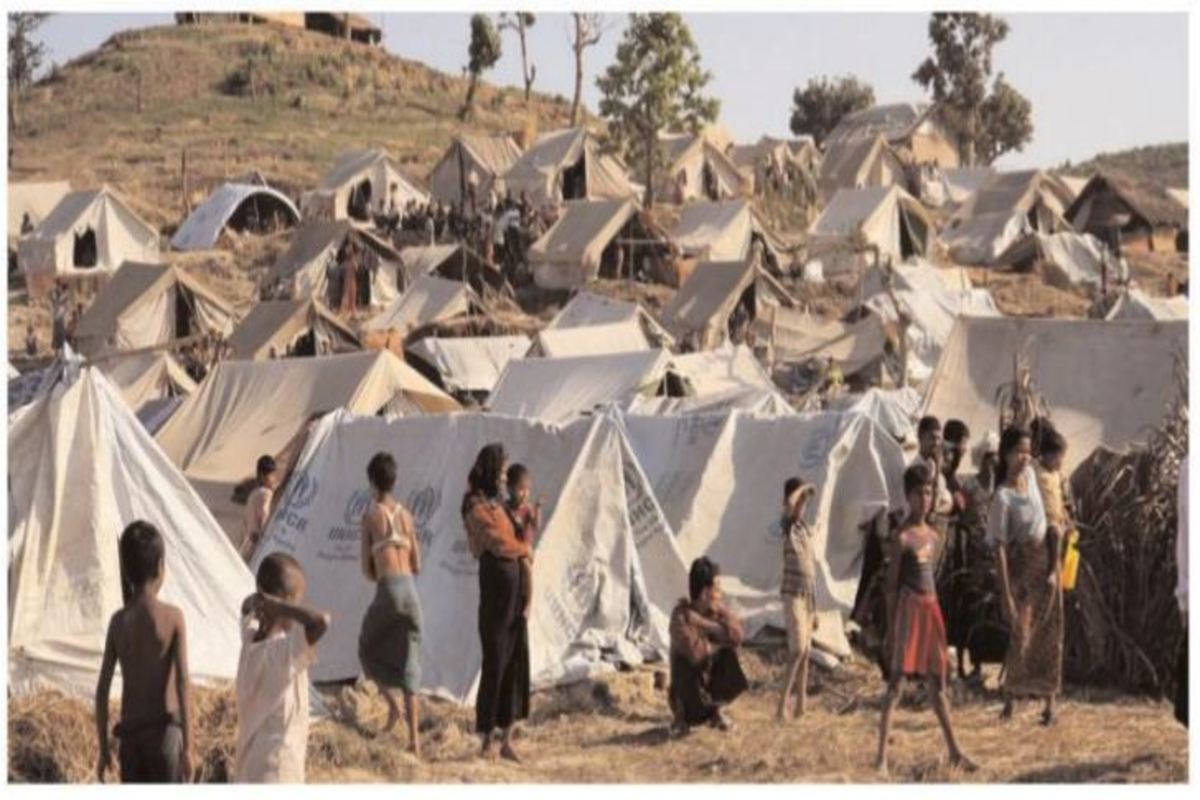India during its long history was once a welcoming home for refugees, whether Afghans, Tibetans, Nepalese, Sri Lankan Tamils or Indians long settled abroad who, facing severe privations, chose to return to their ancestral home.
This attitude has changed with the times; it is no longer a place of refuge for Rohingyas or the Burmese fleeing from the military coup d’état. In this respect, India is similar to most other nations, whose approach to incoming refugees has fluctuated depending on the political circumstances. Switzerland, for instance, is known world-wide for its humanitarian attitude, its founding of the International Red Cross in 1863, and as an impeccably neutral country, with hosting of the League of Nations and subsequently the United Nations.
Advertisement
However, before World War II, Switzerland also severely restricted its grant of asylum to persecuted refugees, mainly Jewish, driven out of Nazi Germany by the policies pursued by Hitler. Confronted with the flow of incoming refugees from Germany from 1933 while suffering from high unemployment caused by the global economic depression, combined with fears of foreign infiltration and Judaization, the Swiss government took measures to prevent Jews from seeking asylum and settling in Switzerland. Heinrich Rothmund, head of Police in the Federal Justice and Police Department during the years between 1933 and 1945, was the architect of this policy, which granted asylum only to political refugees and stipulated that even such exiles should only be in transit and not allowed to work locally. “We do not wish”, he said, “to create conditions favourable to an anti-semitic movement which would be unworthy of our country. We must protect ourselves with all our might and if necessary, mercilessly, against the immigration of foreign Jews.”
Consequent on the Anschluss by which Austria was taken over by Nazi Germany, and when German passports replaced the Austrian, the Swiss reintroduced entry visas for Germans which had been abolished in 1926.
This move was resisted by Germany, and a compromise of sorts was devised that the German authorities would stamp the letter ‘J’ on the passports of Jews.
The Swiss emphasised implausibly that “these measures were in no way racist and procedures foreign to us [but only] to protect Switzerland against foreign infiltration and its labour market against being swamped, something from which Swiss nationals would suffer.” Nevertheless, the Swiss confederal constitution gave significant independence to its devolved Cantons, and therefore instructions from the centre were not always enforced.
Some Cantons exercised a less restrictive policy, and the Swiss were not inclined to expel Jewish refugees who had secretly crossed the border.
Instances of how the Swiss implemented their refugee policy are seen in the cases of four German refugees with Jewish antecedents, Rudolf Hilferding, Arthur Crispin, Wilhelm Dittmann and Fritz Demuth, who fled from Germany to escape prison and execution. Arriving in 1933, Crispin and Dittmann applied for political asylum which was granted for six months at a time on condition they did not work, refrained from political agitation and would return to Germany as soon as there was no longer a threat to their lives.
Dittmann returned to West Germany in 1951, while Crispin died in Switzerland in 1943. The records do not state how they maintained themselves. Demuth moved to London in 1936 and died in 1965. Hilferding was a Marxist economist who had been German Minister of Finance in the cabinets of 1923 and 1928-1929. There is no record why he did not request political asylum in Switzerland, but he probably could use a Czech passport since his wife was Czech, and Czechs did not need visas to most European countries.
Travelling with that passport was clearly preferable to asylum in Switzerland, and he earned a living from editorship of the journals “Magazine for Socialism’ and ‘NeuenVorwarts”. The Swiss police keeping a keen eye on foreigners was apparently unaware of Hilferding’s presence until 1937 when they intercepted a letter to him from the journal “Revolutionary Socialist”, which was under police vigilance. But shortly after the Nazi takeover of Czech Sudetenland in 1938, Hilferding moved to Paris, which proved a fatal error. When France surrendered to Germany in 1940, Hilferding appealed to the Swiss for political asylum, and was refused.
He then spent months trying unsuccessfully to reach North Africa or the Americas, and finally was arrested by the Gestapo, tortured, and committed suicide the very next day. Was the Swiss asylum policy to blame for his death? This is hard to answer, because it is a dilemma to balance perceptions of national security with the justification for humanitarianism.
Retrospective ethical judgements are arrived at more easily. The same yardstick will apply to India’s stand on refugees fleeing from the brutal Myanmar army earlier and today, whose return to their homeland looks far from certain.











